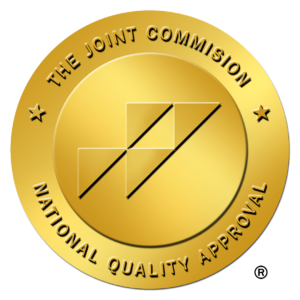From a market share perspective, Epic is at the top of the heap, at just over 12% adoption across the U.S.Implementing an electronic medical record (EMR) system like Epic is a significant undertaking for healthcare organizations striving to enhance patient care, streamline operations, and achieve meaningful outcomes. However, navigating the complexities of Epic EMR implementation presents a variety of challenges. In this blog, we’ll explore some common obstacles encountered during Epic EMR implementation and provide strategies to overcome them effectively.
Comprehensive Training and User Adoption
A key challenge in Epic EMR implementation is ensuring comprehensive training and user adoption across all levels of the healthcare organization. Healthcare professionals, including physicians, nurses, and administrative staff, require thorough training to effectively navigate the system and utilize its features optimally. But training is more than just knowing how to log in; Ensemble Health Partners points out, “Users should know how to log in, advance screens and perform the basic functions of the system necessary for them to do their jobs. But education is something else entirely. Education helps explain why the system is set up the way it is and how each user’s work fits in with the bigger picture. Educating operational leaders and associates on the new system is key to getting the people onboard and supportive of the changes coming their way.”
Healthcare organizations should invest in comprehensive training programs tailored to different user roles and workflows to address these challenges. Providing ongoing support, conducting hands-on workshops, and leveraging interactive training materials can enhance user adoption rates and mitigate resistance to change.
Data Migration and Integration
Another significant challenge in Epic EMR implementation is data migration and integration. Healthcare organizations must often migrate vast amounts of patient data from legacy systems to the new Epic platform while ensuring data accuracy, integrity, and interoperability. Healthcare organizations should develop vigorous data migration strategies to overcome this challenge, including data cleansing, mapping, and validation processes. Collaborating with experienced data migration specialists, both in and outside the Epic migration team, and leveraging rigorous interoperability standards can facilitate seamless data exchange and integration with your existing systems.
Customization and Configuration
Epic EMR offers extensive customization capabilities to accommodate healthcare organizations’ unique needs and workflows. However, configuring the system to align with specific clinical practices, regulatory requirements, and organizational preferences can be complex and time-consuming. To address this challenge, healthcare organizations should engage with Epic consultants or certified professionals to customize the system according to their requirements. Conducting thorough workflow analyses, involving key stakeholders in the customization process, and prioritizing usability and efficiency can optimize the system’s configuration while minimizing disruptions to clinical workflows.
Change Management and Stakeholder Engagement
We can’t stress this enough: Effective change management and stakeholder engagement are crucial for successful Epic EMR implementation. Resistance to change, lack of buy-in from key stakeholders, and communication gaps can impede the implementation process and undermine its success. Healthcare organizations should develop robust change management strategies to mitigate this challenge, including clear communication plans, stakeholder engagement initiatives, and leadership support. Involving frontline staff in decision-making processes, addressing concerns proactively, and fostering a culture of continuous improvement can foster acceptance and ownership of the new system.
Performance Optimization and Support
After successful implementation, ongoing performance optimization and support are essential to maximize the value of the Epic EMR system. Healthcare organizations should establish governance structures and support mechanisms to monitor system performance, address user feedback, and implement continuous improvements. Regular system audits, performance tuning exercises, and proactive support initiatives can optimize system performance, ensure data security, and align with evolving regulatory requirements.
Finding Staff to Implement Epic
Implementing Epic EMR presents various challenges, but healthcare organizations can navigate these obstacles by partnering with Bluebird Staffing. We are a full-service recruiting firm specializing in the experienced IT talent you need to pull off an Epic technology overhaul. Call us to find out how we help healthcare organizations meet their staffing challenges.



